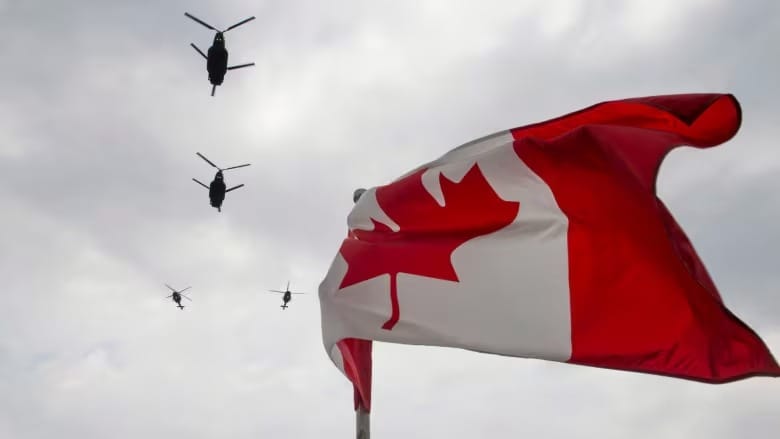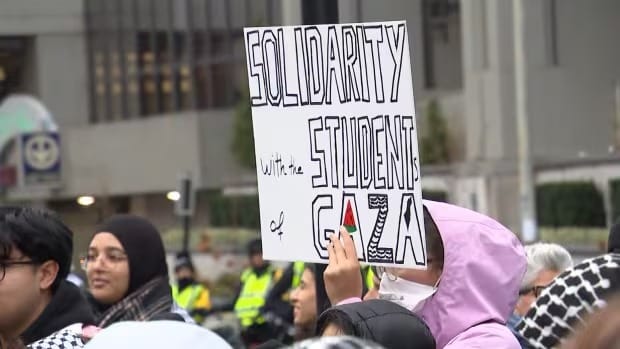Former special ops soldier says he was blacklisted for reporting alleged killing of Afghan civilians
Statement of claim says Claude Lepage's allegations led to Sand Trap inquiries

A former special forces soldier is suing the federal government, claiming he was blacklisted by his unit and forced out of the military after speaking out about the alleged involvement of Canadian troops in the killing of unarmed people in Afghanistan.
Claude Lepage, once a member of JTF2—Canada’s elite and secretive military unit—is also naming one current and two former top Canadian generals, accusing them of downplaying or inadequately investigating the involvement of the Canadian Armed Forces (CAF) in the alleged killings.
Lepage filed a lawsuit in Quebec Superior Court last week, seeking nearly $3 million in damages for the retaliation he says he faced as a whistleblower. The allegations outlined in the court documents have yet to be tested, and the government and the Armed Forces have not filed a defence.
According to Lepage’s statement, his whistleblowing led to two internal military inquiries, called the Sand Trap investigations, into the actions of Canadian soldiers and their coalition counterparts in Afghanistan.
Lepage claims he suffered "discrimination, retaliatory measures, abuse of rights, serious negligence, and numerous violations of his rights" after reporting the alleged execution of Afghan civilians by members of his unit and a foreign government agency involved in joint missions.
A report from the Sand Trap inquiries concluded that Canadian soldiers did not commit any crimes but might have witnessed war crimes by coalition troops. A heavily redacted version of the report was released in 2018 and criticized the culture of secrecy surrounding special forces missions in Afghanistan.
Lepage’s lawsuit provides insight into alleged acts of retaliation against Afghan civilians and raises questions about how his superiors handled serious misconduct allegations.
Five Reports of Civilian Killings
Lepage reported five instances between 2005 and 2008, while serving as a sergeant in JTF2, where Afghan civilians or unarmed individuals were allegedly targeted or killed by members of his unit or another government’s military working alongside them.
The first incident reportedly took place in December 2005, after a JTF2 helicopter was shot down. Lepage claims that a member of his unit fired an anti-tank weapon at a civilian residence and entered the home aggressively. In May 2006, following a night attack on JTF2 soldiers, his unit allegedly bombarded several civilian homes. Lepage says he later encountered an elderly man carrying a bag of human remains, claiming they were the remains of his family. Lepage asserts that no internal investigation took place.
In July 2006, an unarmed man reportedly approached a JTF2 detachment with his hands raised in surrender. Despite being told not to move, the unit’s commander allegedly shot him five times, killing him. Lepage says he reported the incident, which led to an internal investigation, but he claims the officer in charge of the investigation was also in command of the operation that resulted in the man’s death.
After these incidents, Lepage met with Col. D. Michael Day, then-commander of JTF2, to report the lack of impartiality in the internal investigations and express concerns about the treatment of Afghan civilians by some of his colleagues. Despite his concerns, the commander responsible for the shooting was promoted.
Witnessing Further Civilian Deaths
In November 2007, Lepage learned from colleagues that members of another country's military had targeted civilians during joint missions while he was away. He claims to have witnessed this himself during a combat mission on New Year’s Day, which allegedly resulted in the execution of an injured Afghan civilian by a foreign soldier. Lepage says the mission ended with the deaths of three unarmed individuals, and a JTF2 colonel left the room when informed about the civilian casualties.
Two weeks later, Lepage again met with Col. Day, who by then had taken charge of the Canadian Special Operations Forces Command. Lepage expressed his desire to continue combat missions but said he didn’t want to participate in operations that involved the deliberate killing of civilians or unarmed individuals.
Career Unravelling
The day after that meeting, Lepage says he was sent home without explanation. Back in Canada, he was assigned to JTF2's training unit, marking the beginning of the end of his military career. Lepage’s lawyers argue this was an effort to prevent accountability for the actions he had reported.
A CAF briefing note obtained by his lawyers indicates that Lepage was repatriated to Canada due to "operational stress injury," although Lepage claims he was never assessed or consulted by any health professionals. While he served as an instructor, military doctors diagnosed him with post-traumatic stress disorder (PTSD), and his unit leader, Michael Rouleau, recommended that he be classified as "non-available" for military service.
Lepage's lawsuit underscores the challenges faced by whistleblowers within the military and raises serious questions about how the Canadian military handles allegations of war crimes and misconduct.





